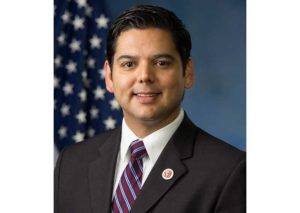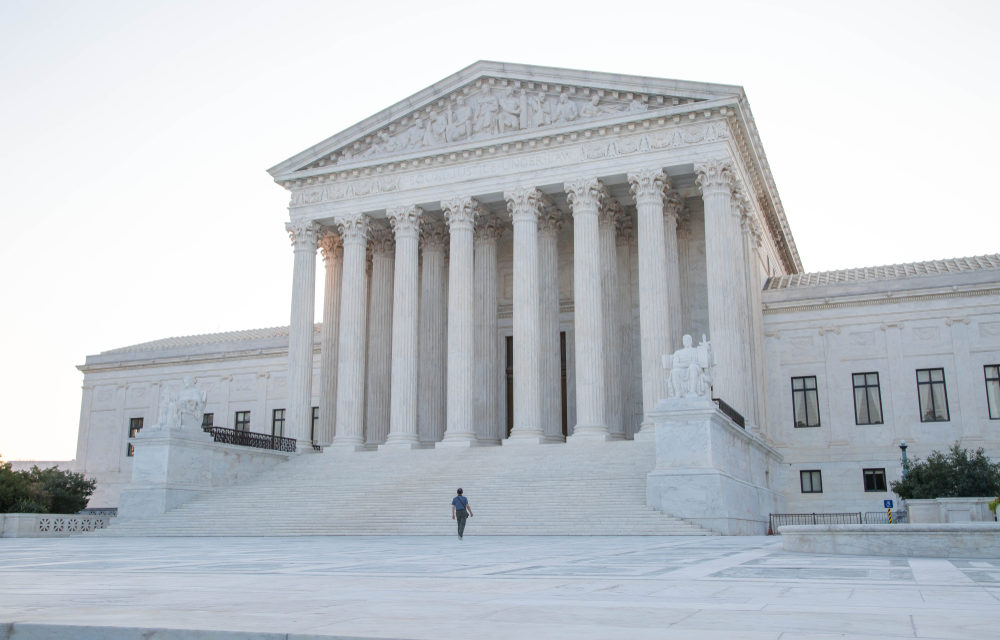As Roe V Wade Falls, Congressman Ruiz expresses his outrage
CALIFORNIA — As expected, in a 6-3 decision, the U.S. Supreme Court overturned Roe v. Wade, a landmark 1973 decision that allowed women to receive abortions.
Today, Congressman Raul Ruiz, M.D. (CA-36) issued the following statement on today’s Supreme Court ruling on Dobbs v. Jackson Women’s Health Organization:

Congressman Raul Ruiz, M.D.
“Today’s decision from the right-wing Supreme Court to strike down Roe v. Wade throws out nearly 50 years of precedent and rips away women’s right to make personal health care decisions. I am outraged and undeterred to fight at every turn to protect women’s access to reproductive health, including the right to an abortion. Everyone must be able to have a say in decisions that impact their bodies, lives, health, and futures.”
The impact will be swift, widespread, and disproportionate, Darrah DiGiorgio Johnson, President and CEO of Planned Parenthood of the Pacific Southwest which oversees San Diego, Riverside, and Imperial Counties, wrote in a column for Uken Report earlier this month. “People of color, immigrants, people living with low incomes, and those who live in rural areas will experience the worst outcomes, precisely those that historically already face barriers to abortion access and health care. These barriers have always existed — lack of insurance, the costs of childcare, taking time off work, transportation and lodging — but when Roe is overturned, the challenges will be exacerbated, and the number of people trying to overcome them will skyrocket.
In May, Justice Samuel Alito Jr.’s majority opinion draft was leaked to Politico, setting the stage for a profound shift in abortion rights.
California is one of four U.S. states that have affirmed the right to an abortion. After the decision draft leaked, Gov. Gavin Newsom vowed on Twitter to “fight like hell” to protect abortion rights.
Democratic leaders around the state, where 72% of residents and 54% of Republicans identify as pro-choice, joined in condemning the draft ruling and pledging to turn California into a haven for women seeking legal abortions.
Shortly after the decision leaked, Newsom and Democrats in the state Legislature unveiled a plan to protect the right to an abortion in the state constitution. Democrats also unveiled a package of 13 bills that aim to ease access to abortion. Those bills include:
- A proposal to block other states from imposing civil or criminal penalties on abortion providers in California.
- A proposal to create scholarships for reproductive care doctors.
- A proposal to ban private insurance companies from charging copays or deductibles for the procedure.
- A proposal to set aside $40 million in the state budget to help the uninsured gain access to abortion, and more.
- A proposal to pay travel and medical costs for out-of-state abortion seekers.
- All of these bills have passed the Senate and Assembly but have been amended and re-referred to various committees before final passage.
Newsom on Thursday signed an urgency bill that takes effect immediately to protect anyone in California from civil liability for providing, aiding, or receiving abortion care. AB 1666 declares that any legal action brought against the right to reproductive choice is contrary to California civil policy, and thus will not be enforced in California courts.
In May, Newsom, with a Planned Parenthood office in Los Angeles as his backdrop, announced an additional $57 million to a Reproductive Health Package that now costs $125 million.
Abortion rights were long considered settled law; and even as conservative states pushed at-the-time unconstitutional fetal heartbeat laws and others restricting abortion access to bring the court to this moment, many legal scholars doubted a right that generations of women and men had counted on was in serious jeopardy.
The case that made it to a full hearing before the court, Mississippi’s 15-week ban on abortion, came after former President Donald Trump appointed three conservative judges — Neil Gorsuch, Brett Kavanaugh and, a few months before his term ended, Amy Coney Barrett, who replaced liberal stalwart Ruth Bader Ginsburg, who died in September 2020.
The court heard oral arguments on the Mississippi case in December.
Lawyers for the state of Mississippi had proposed an array of mechanisms to uphold the 15-week abortion ban but said the court ultimately should overturn the “egregiously wrong” Roe and Casey rulings.
If the court “does not impose a substantial obstacle to ‘a significant number of women’ seeking abortions,” the state argued at the time, the justices should reinterpret the “undue burden” standard established in Roe and give the state the authority to “prohibit elective abortions before viability” of the fetus.
Image Sources
- Raul- Ruiz: Dr. Raul Ruiz
- Supreme Court: Shutterstock





![Enrolling Now, Rewarding Careers Ahead [Sponsored]](https://ukenreport.com/wp-content/uploads/2024/04/COD_heroes_1-1385-2-440x264.jpg)

